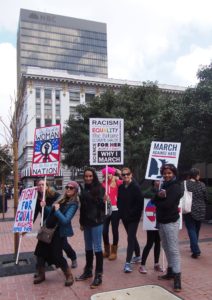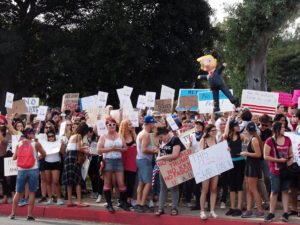“There’s a lot of great music in the world”
![KubiUnerSign[1]](https://isiloz.com/wp-content/uploads/2011/11/KubiUnerSign1.jpg)
Whether the music is part of a film or stands on its own, Kubilay Uner’s goal is to deliver an intense experience, one that completely immerses and transforms the listener. He believes a good piece of music should take you on a journey. That’s what he wants to achieve…
![KubiUnerSign[1]](https://isiloz.com/wp-content/uploads/2011/11/KubiUnerSign1-300x300.jpg) Kubilay Uner was born as the middle child of three and raised mostly in Germany. Since he was about twelve he knew that he was going to be a musician, though he initially thought he was going to be a bass player. He still plays bass, but an arm injury after high school forced him to concentrate solely on composing, and that has been his main occupation ever since. In fact he now considers that injury to have been a real blessing in disguise.
Kubilay Uner was born as the middle child of three and raised mostly in Germany. Since he was about twelve he knew that he was going to be a musician, though he initially thought he was going to be a bass player. He still plays bass, but an arm injury after high school forced him to concentrate solely on composing, and that has been his main occupation ever since. In fact he now considers that injury to have been a real blessing in disguise.
He studied composition with Johannes Fritsch and Klarenz Barlow at the State Academy of Music in Cologne, Germany; with Luigi Nono at a Centre Acanthes workshop in France; and with Mort Subotnick, Fredric Rzewski and James Newton at CalArts.
“This city is just like me!”
He came to Los Angeles to study and fell in love, first with the city and later also with his wife! Now he definitely think of LA as his home town. He earned his Master’s Degree in 1991, and now works as a freelance composer and producer of music, mostly for film, TV and similar mediain Los Angeles, California.
I had a chance to talk with him, here is our interview…
What’s the strongest memory that comes to mind of growing up in Germany as a Turk?
Well, my mother is German, my father is Turkish, so I’m half and half. Growing up I really didn’t feel particularly Turkish. I also didn’t feel particularly German, either. When I was little we lived in Canada for a few years, and later in high school I spent a year in Brazil as an exchange student with a Brazilian family. So while I grew up mostly in Germany, being of mixed ethnicity and having lived in a few different countries made me think of myself as an individual with no specific national heritage. I still see myself that way – I guess that’s why I love it so much here in LA. This city is just like me!
Have you ever been in Turkey?
No. But I do want to visit Istanbul, and I have a lot of family waiting for us to show up… My mother and sister go quite regularly, but of course they live in Germany, which makes the trip a lot easier.
How did US adventure start?
For four years I studied composition in Cologne, Germany and received a scholarship that included funds for a year abroad. I knew I wanted to come to the US, so I did some research and found out about CalArts in Los Angeles, which turned out to be the perfect school for me – very open to experimentation, world-class faculty and facilities, and an amazingly inspiring and talented student body. I was supposed to stay in the US for only one year, but after three months I knew I was never going to leave LA if I could help it. And I have lived here ever since.
What are the advantages and disadvantages that you have experienced as a European musician?
Being European made no difference, I think. Being an immigrant was the real challenge until I had my Green Card. I don’t think it matters if you’re European, Latin American or Asian, I think the hard part is immigration. Now that I’m a citizen and that issue is out of the way, the only real difference I notice between me and my American-born colleagues is that I don’t harbor any fantasies about Europe being some kind of paradise for composers and the arts. Most of my American colleagues somehow believe it’s better over there. Me and most of my European-born colleagues in LA seem to disagree – I mean, we’re all here!
I believe that all composers, draw from their own tradition. Do you see traditional elements in your music?
Well, yes, elements from my own tradition. But: Unless you grow up in a rural environment with little contact to the rest of the world, the real question becomes, what exactly is your tradition? Like many Turks from the big cities, my father came from a very cosmopolitan family, part of not just Turkey but of the whole world. For instance, he loved the music of Mahalia Jackson and Harry Belafonte with a passion, to the point that he would regularly sing their songs for us kids after dinner. He put on a big show singing a bunch of their songs in a row by himself, and we loved it. I’m sure he would also play us records of Turkish music and go to classical music concerts with the whole family, but when I remember my father (who passed away a long time ago) I mostly remember Mahalia Jackson and Harry Belafonte. My German mother actually was the one who made sure she serves us regularly all the traditional Turkish dishes, which she learned to prepare from her mother-in-law and which I love to this day.
So what is your tradition?
I believe my tradition is the sum total of experiences and values that was traded down to me by my parents and my environment, so in my case a very contemporary cosmopolitan mix, which includes German, Turkish, American, Brazilian and other elements. And that cosmopolitan tradition is definitely all over my music.
What’s the best piece of advice you will give to young European musicians who have plans of going to Hollywood?
That’s tough to answer. It’s very hard even for Americans to get started here, and they don’t have to worry about immigration status. I think the smartest thing to do would be to come with a gig already lined up – either have a project with a director here in the US, or come after a bigger European project has gained some notoriety stateside. Of course if you really want to succeed, you’ll find a way even without that (I did…), but you have to be ready to be in it for the long haul, and it definitely has not gotten any easier since I started.
How does it work with directors, do they give you the script to read for your clear ideas? How long does it take to agreement with the director?
I try to get on a project as early as possible, even before the shoot if I can. In that case yes, I start with the script, visit the shoot, look at the dailies, and start sketching music as early as possible. However, more often than not the composer gets hired after principal photography ends, sometime during the editing process. Either way, once the edit is close to final, you sit down for a spotting session with the director, producers, sometimes also the editor and whomever else the director wants present. Everyone watches the movie from top to bottom, picks spots for music and discusses what the music should accomplish in each instance. Of course this process becomes much easier if you already have sketches to talk about, which is why I like to get on board early. As for agreement, a film is definitely the director’s work of art. I have my opinions and suggestions, sometimes strongly so, but ultimately it’s their film. Composers who have a problem with that should not work in film. I make sure to have enough projects of my own, where I call the shots. That way it’s actually fun to try and fulfill someone else’s vision while working on films.
If the director has no musical creativity?
Doesn’t matter at all. Writing music for film has a lot more in common with acting than with writing music for concerts or writing songs. All I need from a director is very detailed dramatic instructions, much like an actor would – what’s the underlying emotion in the scene, what’s the backstory, are we playing with, against or parallel to the action, should the music refer to some other event or character, etc. etc. The other source of inspiration for the music is the pacing and the visual movement in the picture – the cuts, the motion of the camera, the movement within the shots. You react to that much like you would react to a dancer. Film music is almost ballet in that sense, only you’re writing to the dance of the images, instead of dancing to the music. So the editor always ends up giving me a lot of inspiration for the music, without having to say anything to me at all.
What is a good piece of music?
That depends entirely on what you need the music to be. Sometimes a good piece of film music is one that hits the audience hard on an emotional level, other times a good piece of film music simply creates a lot of energy and motion. For listening, sometimes a good piece of music is one that deeply involves, even challenges your whole being, other times it’s one that simply resonates with a very simple feeling, or one that takes you back to a specific moment in time, or one that just makes you want to dance. Personally, I often like to write music that feels ‘transportive’, that takes you on a very visceral journey. I also tend to write fairly layered pieces with many elements interacting simultaneously. But I wouldn’t say either is required for a piece to be “good”, it’s just something I find interesting to do when I work.
I heard that you started building your own instruments… Could you tell us about please?
It started as I was playing around with simple objects. Almost all my work is for some sort of recorded medium (film, CD, etc.) so it’s very easy to just take something from the kitchen, bang or scrape it, record it, and voila, it’s an instrument. Then I started taking that concept further, with ideas how I wanted to have more control over certain behaviors of the noisemaker, that’s how I end up building instruments. Almost all my instruments are very haphazardly constructed, often just for an immediate need, along the lines of duct-taping two pieces of metal together, and many don’t survive one or two recording sessions. I did build a couple of keepers, but nothing on a level that some of my colleagues work on, who are very much into the fine art of instrument building. For me it is usually just a means to an end, to get a new and fresh sound for a specific project.
How important the traditional instruments?
Very. I consider every imaginable way of making sound, from recording street ambience to a concert violin, to be part of my paint box. Whatever color I need, I use. Of course all of these colors carry some sort of inherent meaning, so that becomes part of your consideration just as much as the actual sound does – i.e. traffic noise may also imply “urban” or “technology” or “human progress” or “pollution”; a violin will always also carry some sort of notion of Western classical tradition or fiddle music; a trumpet fanfare will always connote “royalty”, etc. For film music I always start by listening to the sounds that are already part of the film, to see if I can get some of them to become part of the musical score as well – either directly (like hammering sounds in a film about a carpenter) or derived (like using metal sounds in a film that has a very metallic look.)
“Composers can invent a new, completely different way of writing by means of the implementation of technology” they say… What is your opinion?
Absolutely. In fact you can’t avoid it. Something you make with a hammer, nails and a saw will be different than something you make with pots, pans and a whisk. And as you invent a truly new tool, what you make with that new tool will be different yet. Additionally, all technologies cross-pollinate – for instance, electronic sounds have had an immense influence on composers who write for the orchestra. The experience of the new technology (even if they didn’t use it themselves) profoundly changed the way they use the instruments and sound possibilities of the orchestra. Once you hear electronic sounds, you hear possibilities in the orchestra that you couldn’t conceive of before.
“There’s a lot of great music in the world”
Ennio Morricone is my best, who is yours and why?
That’s an impossible question for me to answer – I love so many composers in film, and even more outside of film. In film music some of my favorites are certainly Ennio Morricone, for his amazing melodies but also for his sense of pushing the envelope (he created some absolutely marvelous and very challenging concert music.) Also Carter Burwell for his unique voice and use of interesting colors, Nino Rota for his beautiful sentimentality and wit, John Williams for his amazing command of the orchestra, Thomas Newman for the space he leaves for the drama of the movie to unfold, etc. The list is much, much longer, and I haven’t even begun talking about non-film composers, or songwriters… we’d need a few more pages for that.
Is there any movie that you would like to make to music for?
I never really thought of existing movies that I wish I had scored. I suppose most of the films I love I would have liked to have worked on? Or maybe not, because I like them the way they are! But there definitely are filmmakers I would love to work with in the future: Terry Gilliam, Werner Herzog, David Lynch, Spike Jonze, Darren Aronofsky, Jean-Pierre Jeunet among them. Plus I definitely want to work with the Polish brothers again – they are true visionaries, and they’re also very fun to work with. Perfect combination.
What was that experience like working as a producer also?
As a film composer you always also act as your own music producer, so producing records feels very familiar, just without the picture and with more time to spend on every minute of music. It’s a lot of fun, but then I love being in the studio, so every excuse to get in there is welcome. Producing is a great excuse to be in the studio!
How do you want to be remembered?
Not worried about that yet. Ask me in a few decades! Right now I just want every piece of music I write to be listened to… and liked, if possible… by as many people as possible!
What is your goal?
I’m living it – I write interesting music every day, I work with inspiring artists, musicians and filmmakers, and the world is enjoying what I do enough to pay me to do it again the next day. That’s pretty much all I want from life.
What’s next?
A few films to score, including an upcoming documentary about a skateboard park in Kabul, Afghanistan. For that score I’ll be combining traditional Afghan music, skate punk and recordings of daily life in Afghanistan before the war. Fascinating subject! I’m also planning another CD project and hope to be putting a live concert ensemble together some time in the future, but that’s still in the early stages.
The video below is an interview for the 2006 Film2Music competition, where filmmakers around the world were invited to shoot short films to the music tracks of Kubilay Uner’s CD “Cinematic.” 94 films were submitted, and winners and highlights were screened at the 2007 Sundance Film festival.
Kubilay Uner on Film2Music Competition
For more information please check: www.kubilayuner.com
(Turkish Journal)



